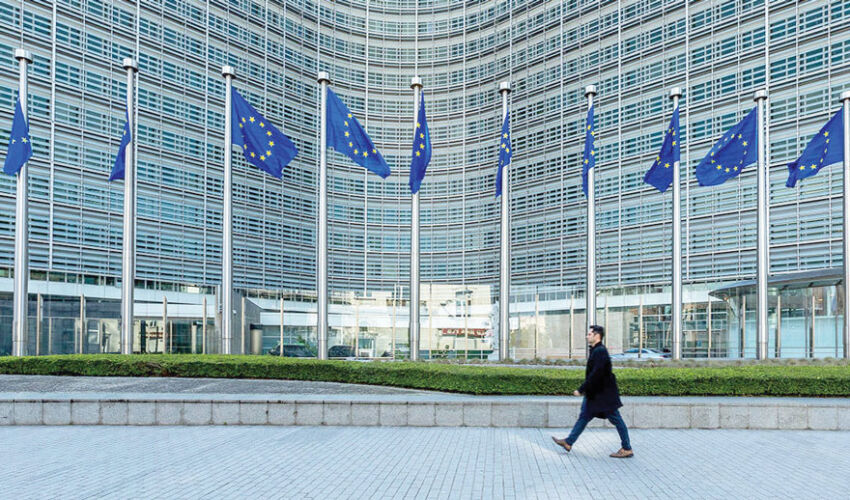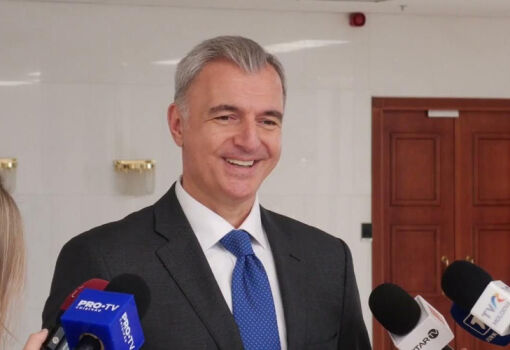
Like U.S. Vice President J.D. Vance’s February speech at the Munich Security Conference, and Ilon Musk’s active and repeated support for the European far right, such attacks confirm that America is no longer Europe’s ally: it has become its adversary. Trump is not just signaling a willingness to give Ukraine to Russia; he is openly seeking to destroy Europe’s social, environmental, economic, and democratic model.
Trump’s goal is to build an authoritarian, anti-liberal world order. He wants to dismantle the democratic state in his own country; form self-serving alliances with the world’s major anti-liberal regimes; and create an impregnable fortress North America by establishing U.S. sovereignty over Canada, Greenland, and the Panama Canal. He even refuses to rule out the possibility of using force to achieve his goals. And he sees no problem with Ukraine moving into Russia’s orbit because he is excited about the return of a world in which the great powers reign in their “spheres of interest.” Each of his goals creates geopolitical, economic and security problems for Europe.
Some Europeans cling to the hope that the breakdown in transatlantic relations will be temporary and that the U.S. midterm elections in 2026 or the 2028 presidential election will fix the situation. But it is too risky for Europe to build its strategy around this idea.
The anti-European stance adopted by the Trump administration did not arise from nothing. By pivoting toward Asia, America has long sought to distance itself from Europe. This was evident in President Barack Obama’s decisions not to strongly oppose the Russian invasion of Crimea in 2014 and not to punish the violation of the “red line” (drawn by Obama himself) when Syrian President Bashar al-Assad used poison gas against civilians in his country.
While U.S. support for Ukraine during Joe Biden ‘s presidency put the brakes on this trend, the aid provided did not match the scale the situation demanded. And it was clear that after Biden, the distancing from Europe would continue. Long before Trump’s re-election last November, I had concluded that Biden was likely to be the last true Atlanticist as president of the United States. For many Americans, NATO is more a relic of a bygone era.
What can Europe do? First, we must respond strongly to Trump’s trade war and not give in to his extortionate demands regarding our regulation of big tech companies. We are indeed dangerously dependent on the US for digital technology. The situation needs to change: we will have to reduce US-related risks just as we are doing now with China. However, America is also dependent on Europe. The EU still accounts for a fifth of global consumption, and the importance of the EU to U.S. companies facing reduced access to the Chinese market is increasing.
Second, Europe must steadily pursue strategic sovereignty in defense and high-tech. The necessary investments will require significant resources, hence new issues of pan-European debt. (Unlike the NextGenerationEU fund, their repayment must be guaranteed by new, pan-European resources).
Third, we must reach out to like-minded countries that have been aggressively targeted by Trump: Japan, South Korea, Canada and Australia. The electoral victories of Mark Carney and Anthony Albanese in Canada and Australia, respectively, show that the West is not going to simply surrender to the new anti-liberalism. We must create a G6, that is, a G7 without the US, and build a fully European defense architecture that includes the UK and Norway.
Fourth, we should build a relationship with the Global South to not only relieve the pressure from Trump and Putin, but also to maintain a system of multilateralism (multilateralism). However, this will require significant changes. We will need to abandon the “Fortress Europe” migration policy and the policy of permissiveness displayed against the extreme right-wing government of Israeli Prime Minister Benjamin Netanyahu. Tolerance for the intolerant in the Gaza Strip has robbed us of much of our moral authority.
Is it realistic to declare European independence from America? After being close allies for eighty years, Europeans are – understandably – having a hard time getting used to a U.S. president behaving like a Russian dictator. The changes we need will inevitably encounter resistance in a number of EU countries that align themselves politically with Trumpism.
And that’s a difficult task for the European Commission, which in recent years has consistently (and somewhat imprudently) tried to act in concert with the U.S. on all issues. Fortunately, new statements by Friedrich Merz, Germany’s new chancellor, suggest that this country – traditionally one of the most Atlanticist in Europe – understands the new challenges ahead.
Josep Borrell
former EU High Representative for Foreign Affairs and Security Policy,
former Vice-President of the European Commission, former President of the European Parliament,
former Spanish Foreign Minister.
© Project Syndicate, 2025.
www.project-syndicate.org



